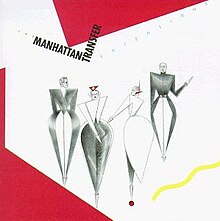
M2 is a 2001 album by Jazz fusion musician Marcus Miller, and the winner of the 2002 Grammy Award for Best Contemporary Jazz Album.

Lite Me Up is a pop album with a strong disco-funk feel by Herbie Hancock. It was Hancock's first release without producer David Rubinson since 1969. On this album, Hancock was influenced by his long-time friend, producer Quincy Jones and sessions included many musicians associated with Jones including Steve Lukather and Jeff Porcaro of Toto. The album was the first on which Hancock played the Synclavier, a digital polyphonic synthesizer.

Mecca for Moderns is the sixth studio album by the Manhattan Transfer. It was released in 1981 by Atlantic Records.
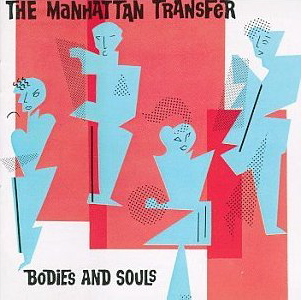
Bodies and Souls is the seventh studio album by The Manhattan Transfer, released in September 1983 on the Atlantic Records label.

Vocalese is the ninth studio album by Jazz band The Manhattan Transfer, released in 1985 on the Atlantic Records. Recording sessions took place during 1985. Production came from Tim Hauser and Martin Fischer. This album is considered to be The Manhattan Transfer's most critically acclaimed album. It received 12 Grammy nominations, making it second only to Michael Jackson's Thriller as the most nominated individual album. It also received extremely high ratings from music critics, including a 4.5 out of 5 stars rating from Allmusic. The album peaked at number 2 on the Top Jazz Albums and number 74 on the Billboard 200. The album's title Vocalese refers to a style of music that sets lyrics to previously recorded jazz instrumental pieces. The vocals then reproduce the sound and feel of the original instrumentation. Jon Hendricks, proficient in this art, composed all of the lyrics for this album.
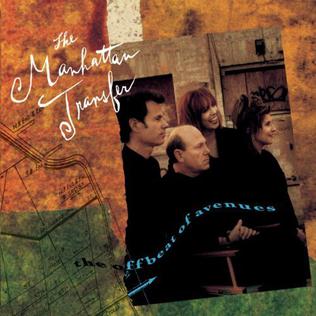
The Offbeat Of Avenues was the thirteenth album released by The Manhattan Transfer on August 13, 1991, by Columbia Records.
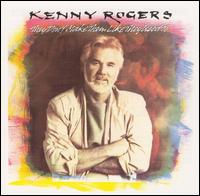
They Don't Make Them Like They Used To is the nineteenth studio album by American country music artist Kenny Rogers released in 1986 by RCA Nashville. The album hit the top 20 on the country charts with the single "Twenty Years Ago" peaked at number two.
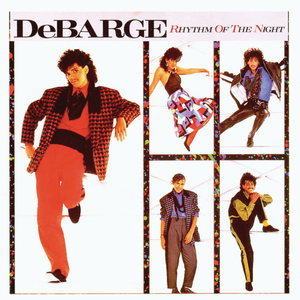
Rhythm of the Night is the fourth studio album by DeBarge, released by Gordy Records on March 14, 1985. It reached #19 on the Billboard 200 and #3 on the R&B Album Chart. The album was also certified Gold by the RIAA.

Rhythm of Love is the fifth album by American R&B/soul singer Anita Baker, released in 1994. The album peaked at #3 on the U.S. Billboard 200 and #1 on the Billboard Top R&B/Hip Hop chart and was certified double platinum, giving Baker her fourth platinum selling album.

Breakin' Away is an album by Al Jarreau, released on June 30, 1981, through the Warner Bros. Records label. To quote AllMusic, "Breakin' Away became the standard bearer of the L.A. pop and R&B sound."

This Time is the fourth studio album by Jazz vocalist Al Jarreau, released in 1980 on Warner Bros. Records. The release marked a change in Jarreau's sound to a more R&B-oriented flavor. As a result, the album achieved more success on the mainstream charts than his previous works, while also topping the Jazz Charts. It also reached No. 6 on the R&B charts and No. 27 on the Billboard 200." In 1981 "Never Givin' Up" gave Jarreau a Grammy Award nomination for Best R&B Vocal Performance, Male.

Friends in Love is a studio album by the American singer Dionne Warwick. It was released by Arista Records on April 14, 1982, in the United States. Her third album for the label, it was recorded during the winter of 1981-82, with production by Jay Graydon. It peaked at number 87 on the US Billboard 200. Singles from the album include the title track, a duet with singer Johnny Mathis, which made the Top 40 on the US Billboard Hot 100 and follow-up "For You," which peaked at number 14 on the adult contemporary chart.

When Love Finds You is the sixth studio album from American country music artist Vince Gill. It was released in 1994 on MCA Nashville. It features the singles "Whenever You Come Around," "What the Cowgirls Do," "When Love Finds You," "Which Bridge to Cross ," "You Better Think Twice" and "Go Rest High on That Mountain."
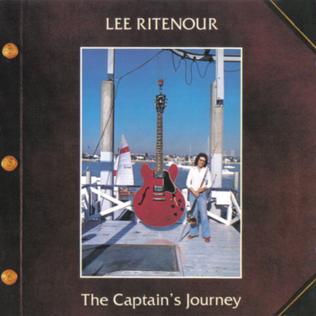
The Captain's Journey is the sixth studio album by guitarist Lee Ritenour, released in 1978 by Elektra Records.

Amy Holland is singer Amy Holland's self-titled debut album. The album was released on LP record in 1980, and was produced by Amy's future husband Michael McDonald. One of the songs on the album "How Do I Survive" became a big hit and made it to the Top 30 chart. Amy Holland would often perform "How Do I Survive" live on music TV shows such as Music Fair and Young Oh! Oh!. Those live performances of the song can be found on YouTube. Holland mostly recorded some song covers for this album, with one of them being Annette Hanshaw's 1928 jazz-standard Forgetting You. The success of the song How Do I Survive helped Amy earn a Grammy Nomination for Best New Artist in 1981, but she did not win the award. Some of the songs on the album were written by Michael McDonald, such as "Here In The Light" and "Show Me the Way Home". "How Do I Survive" was a hit peaking at #22 on the Billboard Hot 100. Three years later Amy would release another studio album called On Your Every Word.
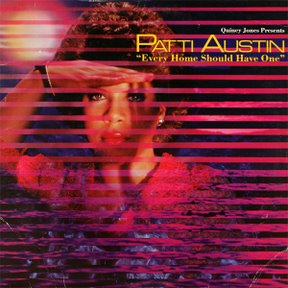
Every Home Should Have One is the fourth studio album by American R&B/jazz singer Patti Austin, released on September 28, 1981, by Qwest Records. The album includes the number-one hit duet with James Ingram, "Baby Come to Me", and the title track, "Every Home Should Have One", which peaked at number 62 on the Billboard Hot 100. She also scored with "Do You Love Me?", a #24 R&B & #1 Dance Chart hit.

Jarreau is the sixth studio album by Al Jarreau, released in 1983. It was his third consecutive #1 album on the Billboard Jazz charts, while also placing at #4 on the R&B album charts and #13 on the Billboard 200. In 1984 the album received four Grammy Award nominations, including for Jay Graydon as Producer of the Year (Non-Classical).

The Benoit Freeman Project is an album by American pianist David Benoit and American guitarist Russ Freeman that was released in 1994 and recorded for the GRP label. The album reached No. 2 on the jazz chart at Billboard magazine. Freeman is the founder and leader of the Rippingtons.

High Crime is the seventh studio album by Al Jarreau, released in 1984. While slightly lower in the charts than his 1981 Breakin' Away and 1983 Jarreau release, this album scored in the top 10 on the Billboard Jazz charts and top 50 in the Billboard 200. In 1986 the album received a Grammy Award nomination for Best R&B Vocal Performance, Male. The album was certified Gold in 1986.
Heart's Horizon is a studio album by American singer and musician Al Jarreau. It was released in 1988 through Reprise Records. It reached No. 75 on the Billboard 200.
